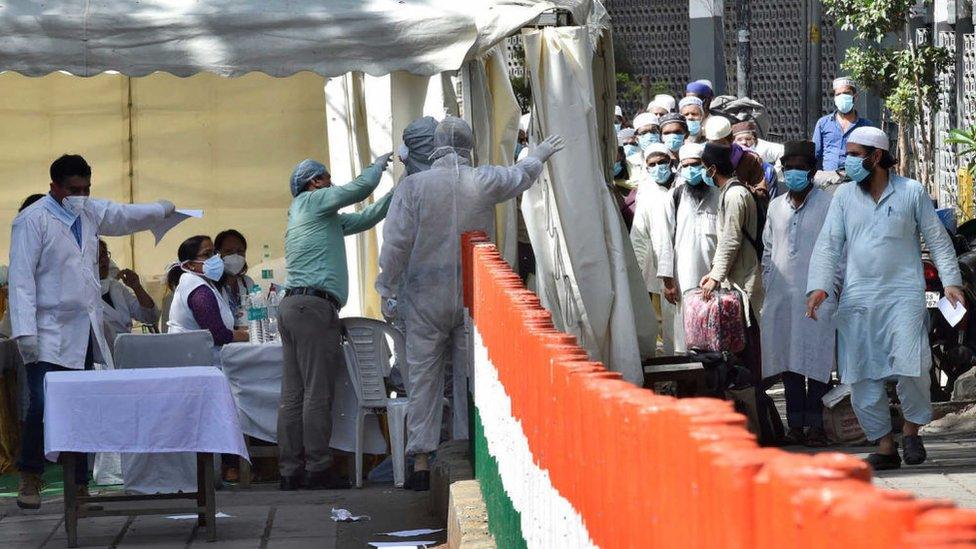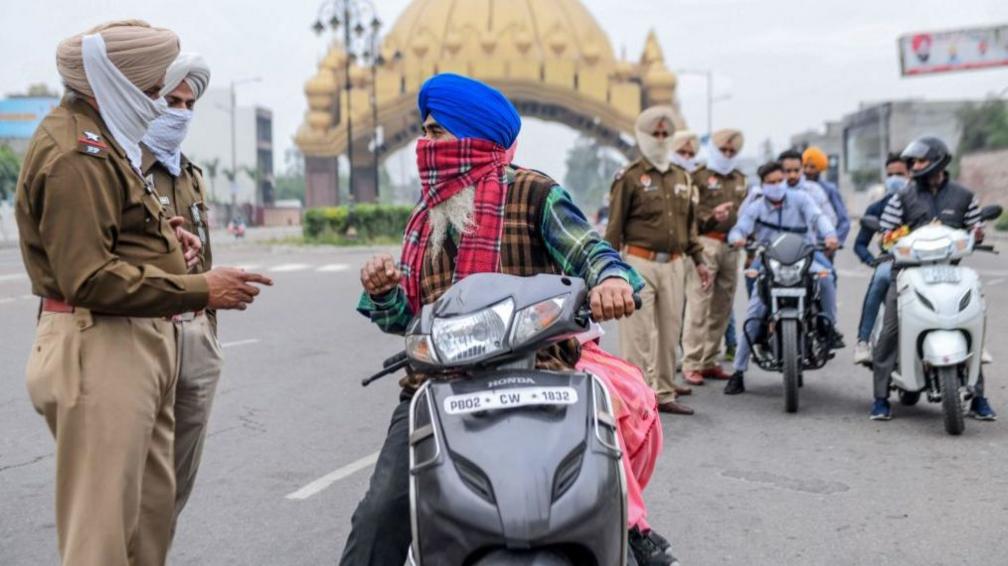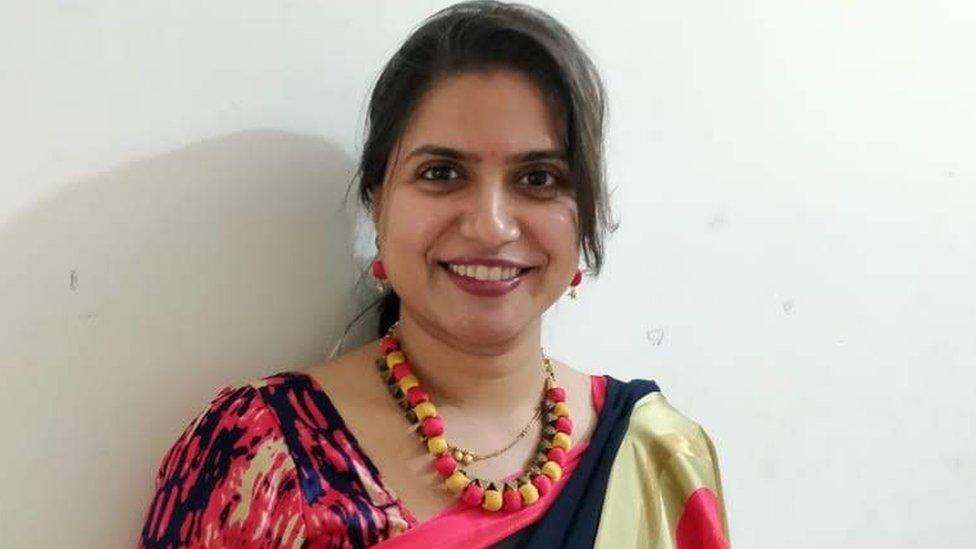Coronavirus: Islamophobia concerns after India mosque outbreak
- Published

The Muslim congregation has been traced to hundreds of positive cases
Outrage over a Muslim congregation that has sparked a new wave of Covid-19 cases in India has taken an Islamophobic turn.
States across India have traced more than 300 positive cases to the weeks-long event.
And Islamophobic hashtags have been trending on Twitter since the news first broke on Monday.
"Instead of corona quarantine, we should have hate quarantine," says historian Rana Safvi.
The gathering was by the Tablighi Jamaat, an Islamic missionary movement that is nearly 100 years old. And its global spiritual centre or markaz is in Indian capital Delhi's Nizamuddin area.
The event was held there - and it was attended by thousands of Muslims from India and abroad.
Officials are still scrambling to identify and trace all of those who attended, as well as their secondary contacts.
But the cases that are directly linked to the event have risen steadily through the week, exposing religious fault lines in a sharply polarised country.
Even as details about the congregation emerged on national news, #CoronaJihad, #NizamuddinIdiots, #Covid-786 (a number that carries religious meaning for Mulsims), began trending.
"We need to be secular. Religious groups should not hold congregations thinking religion is its own act of survival," says sociologist Shiv Visvanathan.
Islamophobic memes have also been circulating - one meme, for instance, shows China as the "producer" of the virus, and Muslims as its "distributors".
Officials believe the infection started with the event's foreign attendees, many of whom are preachers - this list included several from Indonesia, Malaysia, Bangladesh, Kyrgyzstan.
Mukhtar Abbas Naqvi, a minister in the governing Bharatiya Janata Party, called it a "Talibani crime".
Indian television news, which has often been criticised for its divisive rhetoric, flashed headlines such as "Save the country from Corona Jihad" and "Who is the villain of Nizamuddin?"
The swift communal turn has also unnerved Muslims - especially as it comes on the heels of deadly religious riots in Delhi, and a controversial "anti-Muslim" citizenship law that saw thousands of Indians take to the streets in protest.
Omar Abdullah, the former chief minister of Indian-administered Kashmir, has put out several tweets, condemning the Islamophobic rhetoric.
Allow X content?
This article contains content provided by X. We ask for your permission before anything is loaded, as they may be using cookies and other technologies. You may want to read X’s cookie policy, external and privacy policy, external before accepting. To view this content choose ‘accept and continue’.
He also tweeted that while the event's organisers had been "irresponsible in the way they went about things", what they had done was not unique to them.
It's unlikely which specific incident Mr Abdullah was referring to, but there have been many such instances.
Yogi Adityanath, the chief minister of Uttar Pradesh state, attended a busy Hindu celebration a day into the lockdown. And 40,000 people in 20 villages were quarantined in Punjab state after a Covid-19 outbreak was linked to a Sikh preacher who had returned from a trip to Italy and Germany. The man had ignored advice to self-quarantine and visited a large gathering to celebrate a religious festival. And hundreds of thousands celebrated a 10-day temple festival in Kerala state around the same time the congregation in Delhi was happening.
"It was irresponsible and could have been avoided but there were so many other congregations of other religions which took place. This took place in the middle of Delhi. Why didn't anyone stop it?" Ms Safvi asks.
On 13 March, Delhi's government had banned all gatherings of more than 200 people. So it's unclear how the event continued.
Police in Delhi have now charged the cleric and six other leaders, external of the mosque for ignoring the government's warnings.
Its organisers say they did suspend it ahead of the lockdown, and asked everyone to leave. But many were forced to stay back as India suspended international and domestic flights, and all other forms of transport.
The government has said it evacuated 2,300 people from the center in Nizamuddin and sent 1,800 of them to various quarantine centres.
Hundreds of them are still being tested in Delhi and other states, suggesting that cases linked to the event could rise further.
- Published27 March 2020

- Published2 April 2020

- Published1 April 2020
- Published28 March 2020
